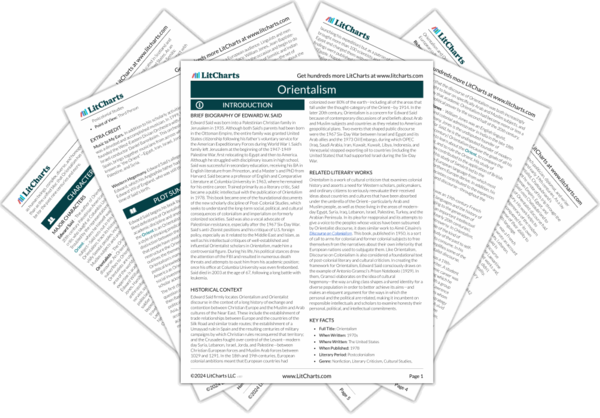The internal consistency of Orientalism is one of its most salient features—indeed, it is the basis for a large part of Said’s argument that Orientalism is a discourse rather than the neutral academic enterprise as which it has historically understood itself. But Said doesn’t want readers to take his as the last word—he doesn’t want the ideas in his book
Orientalism to become an uncritical discourse themselves. Instead, he encourages others to grapple with, challenge, and expand his ideas in the future.
